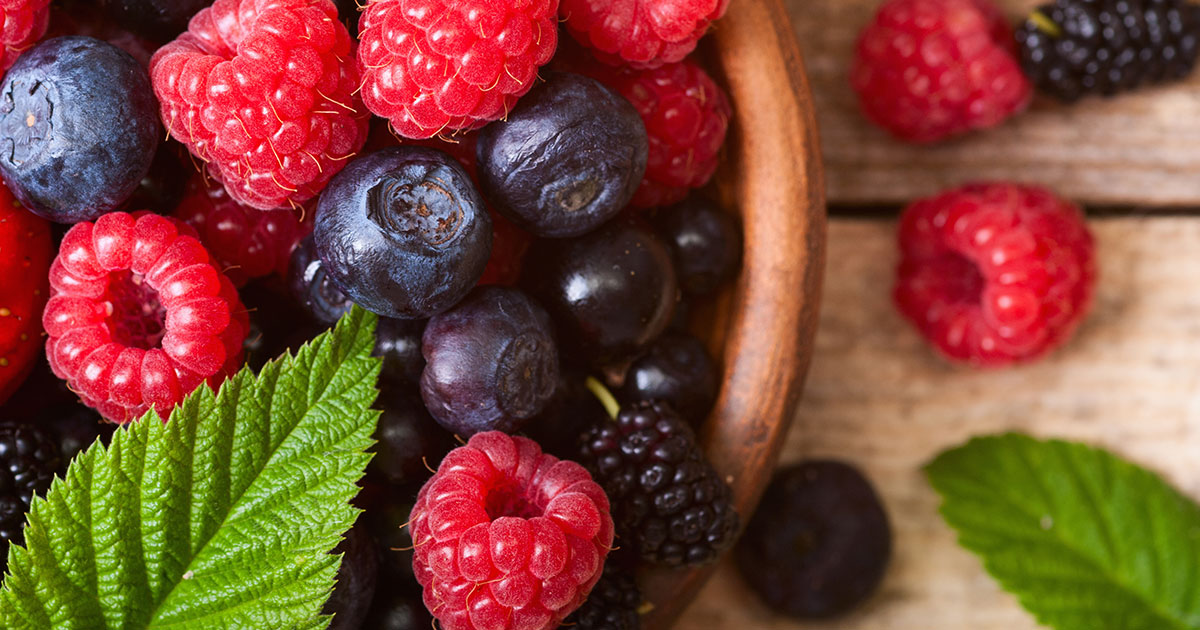Frequent consumption of berries will improve your health if you have diabetes or atherosclerosis, as well as decrease your risk for developing these illnesses. Here’s why.
Cardiovascular Protection
Harvard researchers followed 100,000 young and middle-aged women for 20 years and found that those who ate more than 3 servings of strawberries or blueberries a week reduced their risk for heart disease by 32%.1
Cardiovascular diseases–atherosclerosis, coronary artery disease, vascular dementia, and hypertension– are caused by much more than accumulated cholesterol and fats in arteries. Oxidation, inflammation, sticky platelets, and reduced ability of the blood vessels to dilate, all contribute to these disease processes. The flavonoids and other compounds in berries target each of these problems. As antioxidants, they inhibit the oxidation of cholesterol. This is important because oxidized cholesterol triggers inflammation inside the arteries.
Not only that, their red, purple, and blue pigments (anthocyanins) help to reduce cholesterol synthesis in the body. By inhibiting platelet clumping, they also lower the risk for undesirable clotting and consequently heart attacks and strokes. Plus, the soluble fiber in berries decreases cholesterol absorption in the body and removes it.
Diabetes Prevention
Higher intakes of anthocyanins were significantly associated with a lower risk of type 2 diabetes.2 How?
Berries are low on the glycemic index. The glycemic index measures how fast and how much a food raises blood glucose levels. Since berries rate low on the index, they make an ideal food for individuals who are obese or have either pre-diabetes or diabetes. Their soluble fiber slows down the absorption of glucose. The polyphenols in blueberries inhibit the enzymes that break down sucrose. Berries also reduce the natural inflammation that occurs after consuming a high fat, high carb diet in overweight individuals .3
Blueberries contain pterostilbene and resveratrol. These phytochemicals inhibit inflammation. This is important because inflammation fuels the many complications of diabetes. Accumulating studies indicate that resveratrol helps to protect diabetic individuals from the many complications of diabetes while other studies show that pterostilbene itself produced a substantial decrease in plasma glucose levels and glycated hemoglobin (hemoglobin A1c).4 This test provides the average of your glucose levels for the last six to twelve week period. When the blood sugar (glucose) is too high, it builds up in the blood and combines with the hemoglobin, becoming “glycated”. Elevated hemoglobin A1c increases the risk for diabetic complications.
Disclaimer: The information in this article is general and educational in nature. Wildwood Sanitarium, its entities, or authors do not intend this information as a substitute for proper diagnosis, treatment, or counseling from a qualified medical provider who knows the person’s medical history and laboratory work.
Copyright © by Wildwood Sanitarium, Inc. 2026
References:

